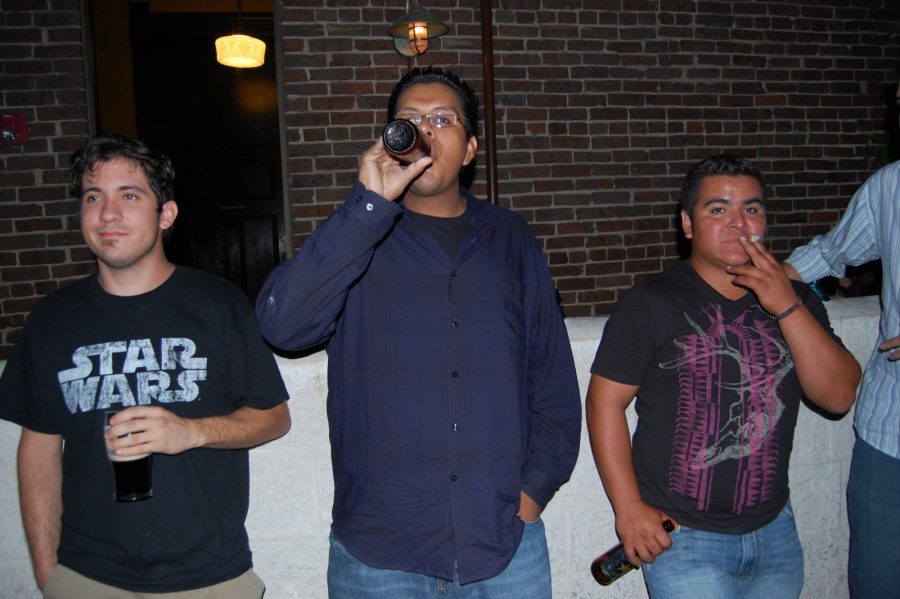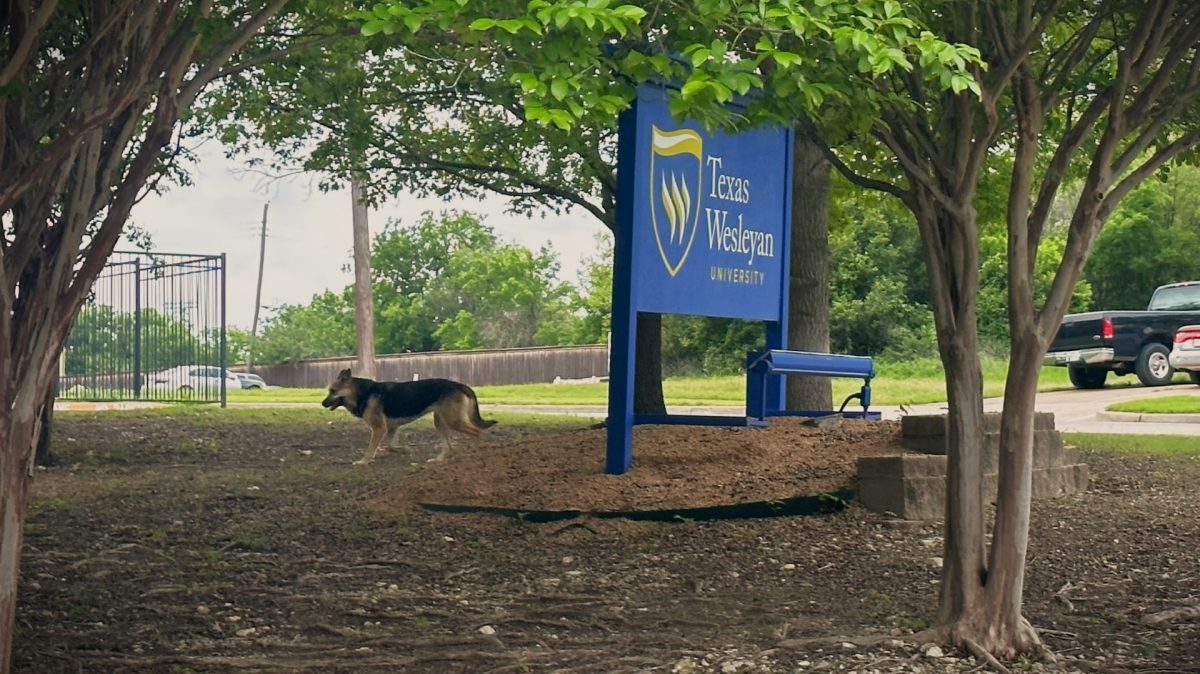The Honorable Judge Lorraine Irby remembers feeling peer pressure as a teenager.
It was the summer after eighth grade, and she was starting over at a new school; she was invited to a party, and she wanted the cute older boys to like her. One of them offered her a beer.
“I drank it and relaxed a little bit and stopped stuttering,” says Irby, a graduate of the Texas Wesleyan School of Law. “I started drinking more and more with these people and we had a blast.”
The effect on her classwork was severe.
“I was never a great student but I lost all desire to go to all of my classes,” she said. “I was a true after school special. I do not feel like I was pressured into drinking but I wanted to be cool so I started drinking.”
Now a judge for Haltom City’s Municipal Court, Irby says she believes peer pressure can be detrimental to people of all ages, but that college students can be especially vulnerable.
“College students are often lonely and they may also be very insecure about their new surroundings,” Irby wrote in an e-mail. “In order to fit in, they might do things that are different from how they usually act. Could be something simple and harmless like joining clubs to more harmful like alcohol, drugs or sex. They just want to make a connection and often will do so at whatever cost.”
Almost all teens experience peer pressure in one way or another, often in negative ways. According to an article by aptparenting.com, for example, nearly one-third of teens have been pressured into a sexual relationship. Fifty-five percent have been pressured to try illegal drugs for the first time, while 70 percent currently smoke due to peer pressure, and 25 percent have been pressured into binge drinking during their high school or college years.
Podcast by LaTerra Wair
Heather Hollingsworth, the coordinator for Northeast Tarrant County Teen Court, wrote in an e-mail that she experienced peer pressure at a young age and she wishes now she hadn’t done what she did as a teen.
“I was such a follower in high school,” Hollingsworth wrote, “and I wish, often, I could go back and be the person I am now – in high school. It would be such a different experience. Unfortunately only life and experience and trials and tribulations teach us that.”
Hollingsworth now works on a weekly basis with teens that have committed class C offenses. Often these offenses include doing drugs and drinking alcohol, and many of the teens say that they felt pressured to engage in these actions by friends. Many of the teens return later saying that they are happy for the opportunity Teen Court gave them and that they have cut ties with the friends that pressured them.
“At 46 years old, I’m a much different person than I was when I was 15-18,” Hollingsworth wrote, “but man, I loathe peer pressure, but it is so real and is so pathetic and happens every day, everywhere.”
Texas Wesleyan student Jiazhen Yu wrote in an e-mail that he thinks people under the influence of peer pressure can be unaware of their actions at times, and this could even lead them to commit extreme acts.
“I do think college students would be more vulnerable because of the age of college students,” Yu wrote. “If you are young, you might not care about those pressures. If you are old, you would know that pressure from others are not that important and you shouldn’t get influenced by that. College students are at the middle point of mature and immature.”

Dr. John Hall, professor of psychology, wrote in an e-mail that all humans are influenced in some degree by other people, and that influence can lead to making mistakes. In his classes he discusses the various factors that play into peer pressure, from both the side of the influencer and the influenced.
“Peer pressure is the idea that decisions that lead to problematic behaviors is often, at least in part, is a function of the implicit influence of others,” Hall wrote. “In other words, it is the idea that people will do things because they feel pressure from others to act in a certain way. It is not unlike the wind, you can’t see it but you certainly can see its effects. The wind can blow a few things around or it can destroy everything in its path. So can peer pressure.”
Hall also wrote that many branches of psychology study the phenomenon of peer pressure from multiple standpoints. People may fall to peer pressure due to uncertainty, and people may pressure others to feel control.
“Two fundamental payoffs seem to apply here,” Hall wrote about pressuring others. “For one, it can lead to a sense of control, which is rewarding. This is especially true for those who have self-doubt about their worth and power. Secondly, it can make a person’s sense of the rightness about their own behavior more certain, reducing anxiety and guilt.”
Wesleyan student Tyler King wrote in an e-mail that peer pressure often causes someone to act in a way they would not typically act as they try to impress others.
“I do believe that they (college students) are vulnerable because college is a time of trying new things and often those new things are out of certain individuals comfort zones,” King wrote. “Some people don’t have as strong of a personality. So it is very easy for them to get taken advantage of or give into peer pressure.”
Mariah Dawn Kuhn, another Wesleyan student, wrote in an e-mail that she believes students are more vulnerable to both pressuring others and being pressured than those that are not students.
“Some people enjoy peer pressuring others because they like the sense of power of making someone do what they want despite not wanting it,” Kuhn wrote. “What makes some people more vulnerable is maturity. As you mature, you care less about what others think which makes peer pressure seem trivial to you.”
An article on recoveryconnection.com also details how college students may try new things due to their newfound freedom and desire to push the limits. Additionally, pressure put on them by stress in classes may cause them to seek relief, and many turn to alcohol or drugs. The article warns that many students with an alcohol or drug issue may begin experiencing a decline in their academic performance, which can cause many more problems. Students may fear loneliness and rejection if they resist their peers’ influence.
But despite all of this, drugabuse.gov thinks that it is very possible for teens and young adults to say “no” when confronted with a choice in a pressured situation. On an article published in 2017, the website details ways that teens can resist peer pressure, which include suggesting other things to do or simply hanging out with other people who are not bad influences. Students should be sure to speak in a calm but stern voice when saying “no,” as this will give them more confidence than if they let their emotions take control.
Interestingly, Irby also noted that peer pressure can be used to encourage good behavior.
“I have been reading articles on how courts, counselors and prisons/jails are using peer pressure to encourage acceptable behavior from the defendants,” Irby wrote. “I am carefully watching these programs!”
Hollingsworth also believes that peer pressure can be a good thing when people are influenced to do the right thing. She wrote that she believes this is part of why Teen Court is so effective. The verdict comes from a jury of peers, not just an adult berating the teen for what they did wrong.
Graphic by Sachiko Jayaratne
“I think Teen Court helps let others know there are good people and law-abiding people and others who care what they have to say or think,” Hollingsworth wrote. “I think Teen Court helps teens understand that their own peers don’t all find it acceptable and don’t follow the crowd, so to speak, and that’s okay. There are cool people who abide by the law. Sometimes when you’re surrounded by a group of friends who don’t, you think no one does. Teen Court exposes them to other people and other scenarios and makes them feel not alone or see there are good people.”









![Pippin, played by Hunter Heart, leads a musical number in the second act of the musical. [Photo courtesy Kris Ikejiri]](https://therambler.org/wp-content/uploads/2025/04/Pippin-Review-1200x800.jpg)
![Harriet and Warren, played by Trinity Chenault and Trent Cole, embrace in a hug [Photo courtesy Lauren Hunt]](https://therambler.org/wp-content/uploads/2025/02/lettersfromthelibrary_01-1200x800.jpg)
![Samantha Barragan celebrates following victory in a bout. [Photo courtesy Tu Pha]](https://therambler.org/wp-content/uploads/2025/05/20250504_164435000_iOS-834x1200.jpg)





![Hunter Heart (center), the play's lead, rehearses a scene alongside other student actors. [Photo courtesy Jacob Sanchez]](https://therambler.org/wp-content/uploads/2025/04/thumbnail_IMG_8412-1200x816.jpg)
![Student actors rehearse for Pippin, Theatre Wesleyan's upcoming musical. [Photo courtesy Jacob Rivera-Sanchez]](https://therambler.org/wp-content/uploads/2025/04/Pippin-Preview-1200x739.jpg)
![[Photo courtesy Brooklyn Rowe]](https://therambler.org/wp-content/uploads/2025/05/CMYK_Shaiza_4227-1080x1200.jpg)

![Lady Rams softball wraps up weekend against Nelson Lions with a victory [6 – 1]](https://therambler.org/wp-content/uploads/2025/04/Screenshot-2025-04-04-100924-1200x647.png)



















![Lady Rams softball sweep Langston Lions in first SAC Doubleheader [2 – 0]](https://therambler.org/wp-content/uploads/2025/02/SoftballLions.png)